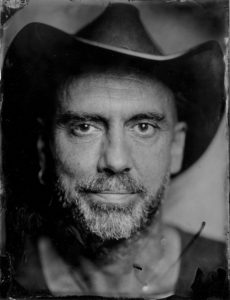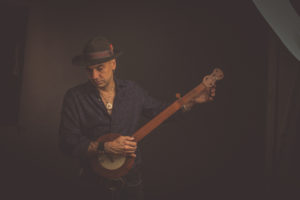Where others only hear sounds, Tim Eriksen hears music.
“I’ve always been interested in the most elemental sounds,” he says. “It could be train sounds, as well as crickets and peep frogs. I grew up very attentive to the sounds around me.”

Eriksen, who is performing at the First Encounter Coffee House in Eastham on Saturday night, turned his attentive ear into a 30-plus-year career, which has taken him musically from Appalachia to Bosnia and from hardcore punk to sacred harp.
Perhaps best known for his work on the soundtrack of the 2003 movie Cold Mountain — a Civil War drama with Jude Law, Nicole Kidman, and Renée Zellweger — Eriksen started his performing career in his teens, when he was immersed in the punk music scene. But even then, his interests weren’t confined to punk. In the late ’80s, he formed Cordelia’s Dad, a band that brought punk fury to folk music. The group went on to record throughout the ’90s and into the early part of the ’00s.
Eriksen’s eclectic tastes and curiosity have led him to study Carnatic music — the classical music of southern India — and to record with artists from other musical fields. In 2010, he partnered with Afro-Cuban and world-jazz pianist Omar Sosa on Sosa’s Grammy-nominated album, Across the Divide. Two years later, he was featured on two cuts of Czech singer Lucie Redlová’s album Křižovatka, and last year, he released a duet he made with the great Romani singer from North Macedonia, Esma Redžepova.

One of the most powerful of Eriksen’s projects was Žabe i Babe (translation: “frogs and grandmothers”), an album of Bosnian folk and pop music that he and his wife, Bosnian-born Mirjana Lausevic, recorded in the late ’90s in response to ethnic cleansing and war among Serbs, Croats, and Bosnian Muslims that had been going on in the region.
“We started a band to celebrate the music of Bosnia at a time of tremendous cultural division, the idea being that we would sing all of the music from the region,” Eriksen says. “We did everything from Islamic sacred music to Bosnian pop. We just threw it all together.”
Eriksen came up with the fictional village of Pumpkintown to describe the place that incorporates his many different musical stylings in a single show.
“That’s been a fun way to give people access to a wider range of sounds than they might have come for,” Eriksen says.
Despite his experiences with world music, the styles that Eriksen is most closely associated with are the vocal traditions of New England and Appalachia. Among those is sacred harp, also known as shape note singing, a choral technique begun in the 19th century in New England that later took root in Southern churches. For Eriksen, shape note singing is a connection to his earliest musical memories.
“I grew up singing in harmony with my family, and unaccompanied singing is probably the first kind of singing that most of us or all of us hear — lullabies, just singing around the house,” he says. “Shape note or sacred harp singing is really set up to take advantage of that very simple, elemental urge to use our voices together. It’s both an individual and a social expression of culture, history, sociality. It goes pretty deep if you let it in.”
Another traditional American form, the high, lonesome, unaccompanied vocals of Appalachia, set Eriksen along the path to Cold Mountain. That journey began in the home of his music teacher, David Reck, where Eriksen came upon an unlabeled cassette tape on the basement floor.
“I didn’t know who it was,” he says of the voice on that cassette, “but I liked the music and I learned a song, and I wound up singing it for the opening of a show at the [New] Museum of Contemporary Art in New York.”
The music that Eriksen was playing, it turns out, was by Roscoe Holcomb, an eastern Kentucky coal miner. Holcomb’s music was also taken up in the late ’50s by the legendary folk group New Lost City Ramblers and, by chance, John Cohen of the Ramblers happened to be in the audience at the museum that day. As a result, Eriksen and Cohen became friends.
Eriksen recalls how, years later, Cohen played some of Holcomb’s recordings for T-Bone Burnett, a music producer for Cold Mountain, and Anthony Minghella, the movie’s writer-director. “They said, ‘This is wonderful — is there anybody who sings this now?’ And [Cohen] said, ‘There’s just one guy….’ ”
That Appalachian sound, along with sacred harp singing, has become a staple for Eriksen, who sings and plays the music in a way that stays true to its origin and true to himself.
“I sing in a number of different traditions, including my own songs, which are an amalgamation of influences,” he says. “Over the years they’ve all become my music.”
Eriksen says he gets personal satisfaction from “the social experience of playing — helping to create an environment in which people are experiencing music and each other, ideas and history. Music is just a wonderful window into all of the aspects of ourselves and our experiences.”
Around the World in 80 Minutes
The event: Tim Eriksen in concert
The time: Saturday, Feb. 8, at 7:30 p.m.; doors open at 7 p.m.
The place: First Encounter Coffee House, Chapel in the Pines, 220 Samoset Road in Eastham
The cost: $20 at the door



